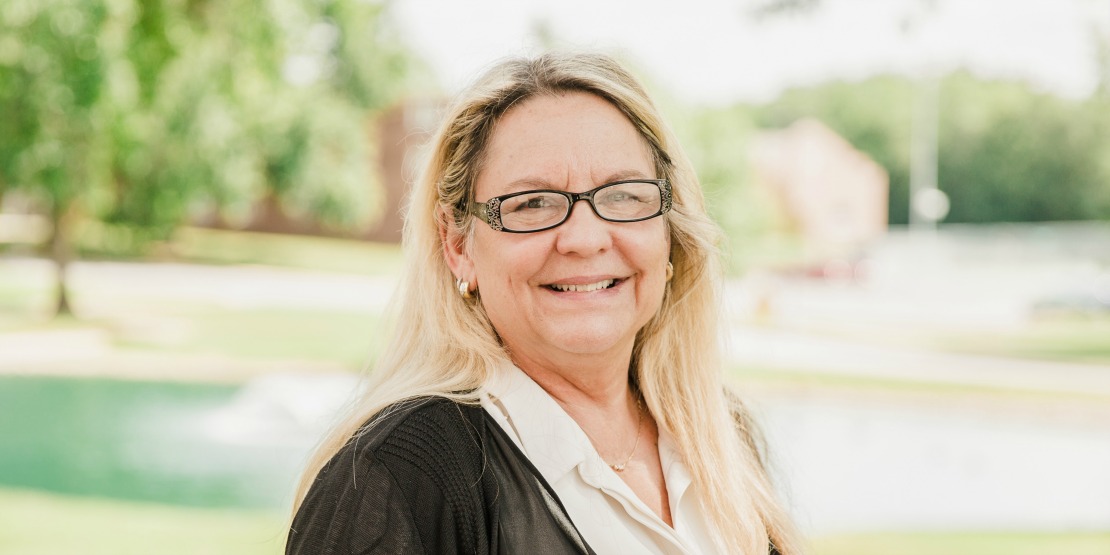Cynthia Kramer
Professor, Legal Studies
Areas of Emphasis: Conflict Resolution, Family Law, and Juvenile Law
I tell students that I’m not teaching you to be a lawyer. I’m giving you skills that transcend subject matter. If you can think like this, you will be successful in whatever profession you decide to do.
A Social Justice Start to the Legal Profession
My father was in the Marine Corps, so I moved around a lot as a child — everywhere from California to Florida — but I primarily grew up in Oklahoma. My original career goal was to teach high school English and get a master’s and Ph.D. in English. But when I graduated from college, unfortunately, the labor market was not in sync with my goals; there was a glut of English teachers and I couldn’t get a job.
The job search was frustrating. It was the early 1970s and job ads were separated into women’s jobs and men’s jobs. The women’s jobs were things like child care attendants, cleaners, and clerical assistants. Employers wouldn’t hire me for management-level positions because I was a woman. Students today find it very hard to believe, but employers would come right out and say it. They’d comment with things like “We need to give this job to a man who is supporting his family.”
It was the reality of these experiences seeking employment, together with other social justice issues that were being confronted in the 70s (the environment, animal welfare, income inequality, etc.) that caused me to rethink my professional goals to focus on a career in which I could be part of addressing these inequalities.
Different Legal Experiences
I went to law school at night at the University of Tulsa and during the day I worked for the university’s continuing education department, first as a secretary then as a coordinator for continuing legal education. Most days, I worked from 8 a.m. to 5 p.m. and then went to law school from 5:30 p.m. to 9:30 p.m. Plus, I had a two-year-old child at the time. It was quite a struggle and I don’t think I slept for several years.
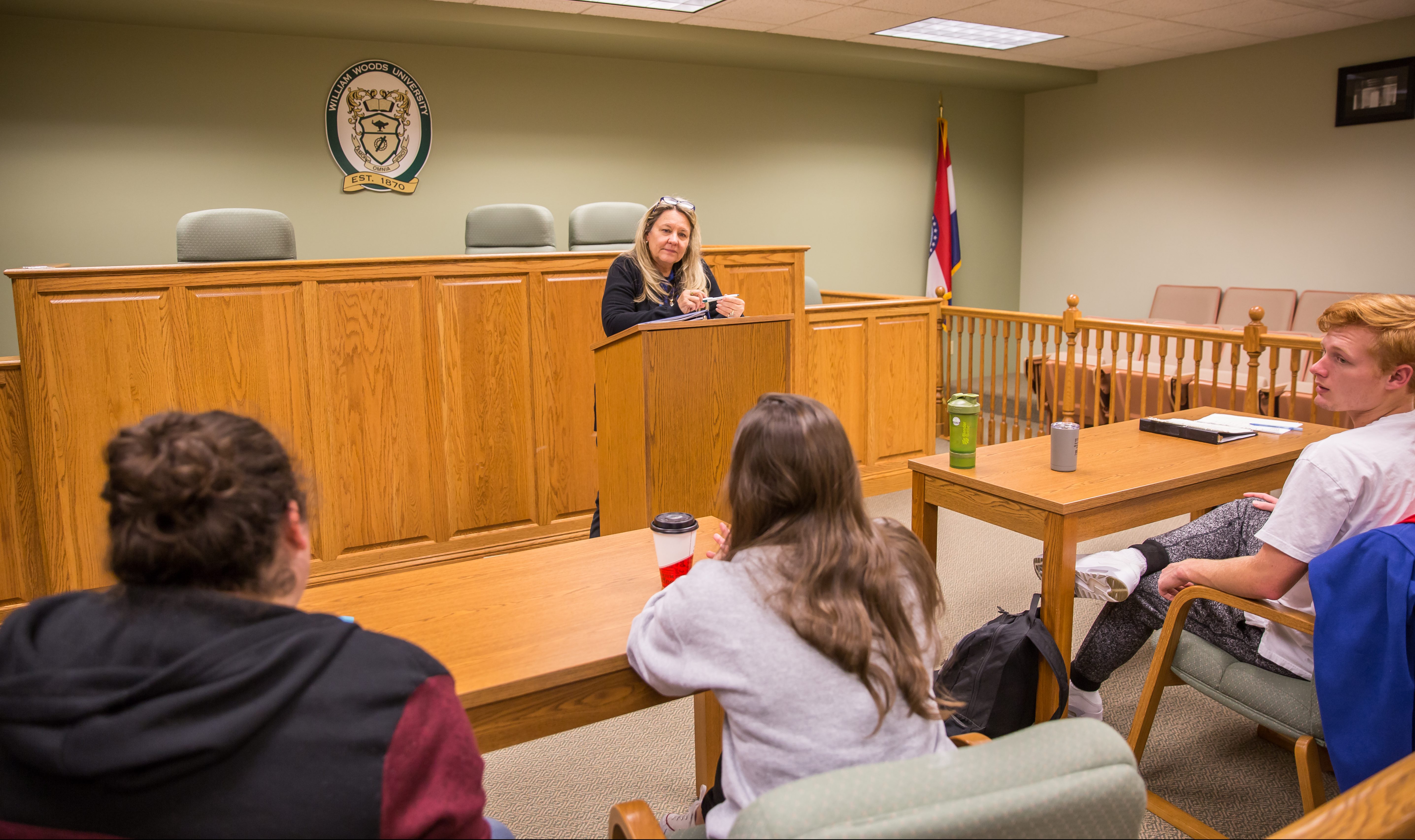
After graduating, I passed the Oklahoma Bar Exam and I went to work as an associate attorney for a medium-sized general practice firm, representing Blue Cross Blue Shield of Oklahoma and a number of Native American tribes. My husband then got a job in Ohio, so we moved there, and I had to take and pass the Ohio Bar Examination.
I held a variety of roles, including staff attorney for Ohio Governor’s CETA Task Force, chief legal counsel and director at the Ohio Bureau of Employment Services, a consultant for legislative and administrative agencies, adjunct professor at a law school, hearing officer with the Ohio Department of Health, etc.
I’ve been very fortunate in that I’ve had all kinds of great legal experience: in politics, in government and administrative practice, in law firm practice, in private practice, as a consultant. My current areas of practice are family and juvenile law, but I also do employment law, probate, wills, and small business.
Additional Legal Positions
In addition to my role as a professor, I also opened a small law office in Fulton in 1999, where I specialized in general civil practice and mediation services and had students as interns.
After undergoing training, I’ve also recently added on a job as a Guardian ad Litem for the 13th Judicial Circuit juvenile court in Boone County, where I act as an attorney for children (newborns to 18-year-olds) and make recommendations based on their best interests. It’s an amazing experience. I even had a student studying juvenile justice intern with me and sit in on some of the hearings to see how the process works.
Expanding the William Woods Legal Studies Department
When I started at William Woods University in 1997, all we had was a paralegal degree. I was able to add majors in political and legal studies, criminal justice, and juvenile justice, with concentrations in pre-law and homeland security.
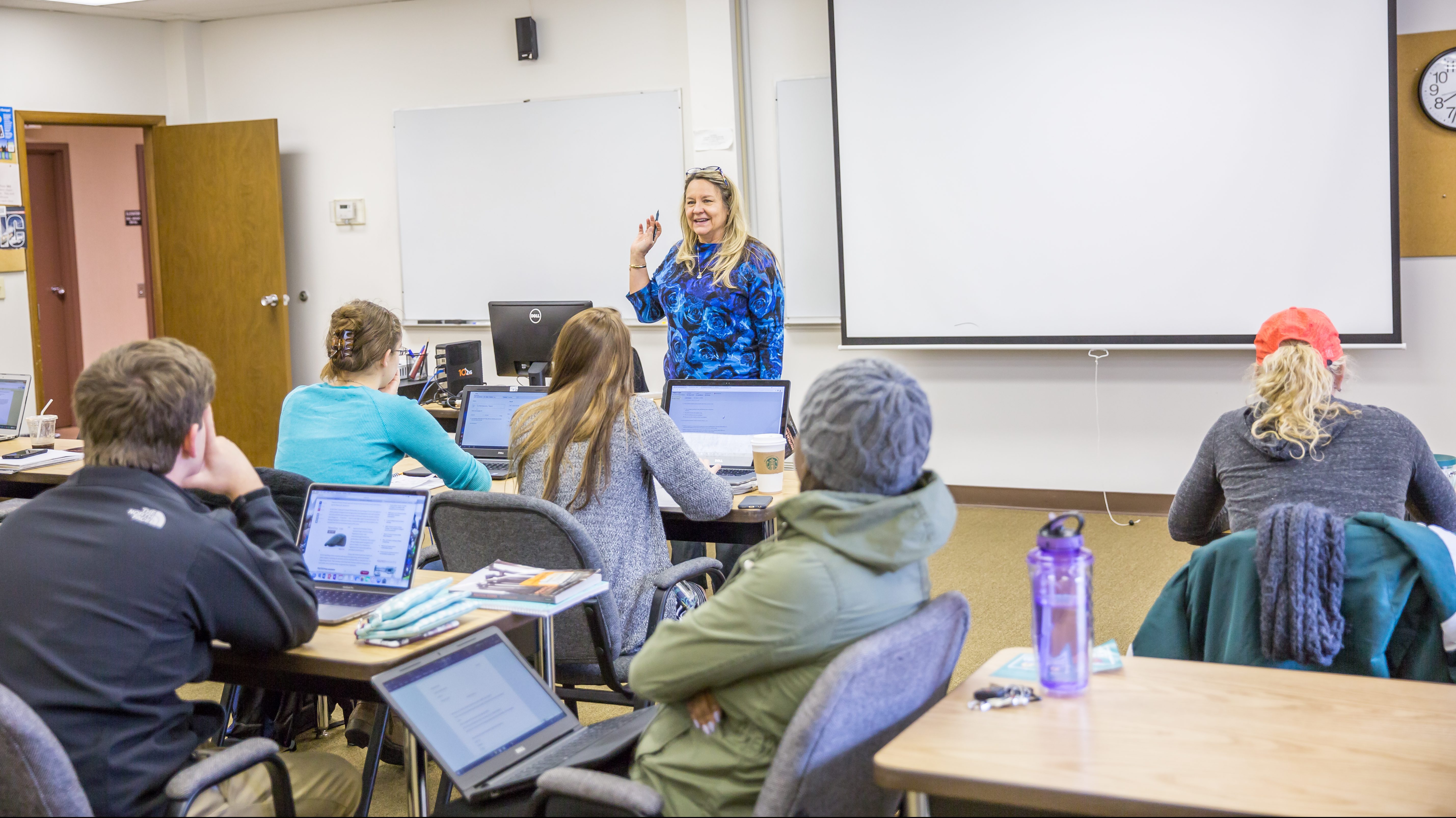
Many of these programs were added in response to the needs of the legal community. To be successful, an undergraduate law-related program needs to be able to adapt to the political and legal environment and I believe we have been very successful at WWU in doing that. While our core program remains committed to the classic requirements of an academically sound political and legal studies major and a paralegal studies major, we have added and subtracted areas of concentration based on the needs of the legal community in order to maximize our student’s potential for after-WWU success.
The Paralegal and Political and Legal Studies Programs
Our Political and Legal Studies major is a combination of the undergraduate study of law and political science. The core courses in the major include an equal balance of classes designed to not only introduce students to law and politics, but to prepare students to immediately begin work in those fields upon graduation or to successfully matriculate to law school or graduate school.
To assist students further, we have recently added two certificate options to our curriculum, which include a Prelaw Certificate and a Political Studies Certificate.
The core curriculum consists of both theory and application courses, and students have the option of taking additional practical application courses through our Paralegal Studies program as electives.
In addition to the requisite introductory courses in the American Legal System and Politics and Government, students will learn about the underlying theories and philosophies of both law and politics through courses such as American Political Theory, American Jurisprudence, and Constitutional Law. Students will also take required practical application courses such as Conflict and Dispute Resolution, Writing and Research in Public Policy, and Advocacy. Many of these courses, such as Advocacy, include performance-based activities like debate, mock trial, and moot court. All our courses require students to read, analyze, and discuss.
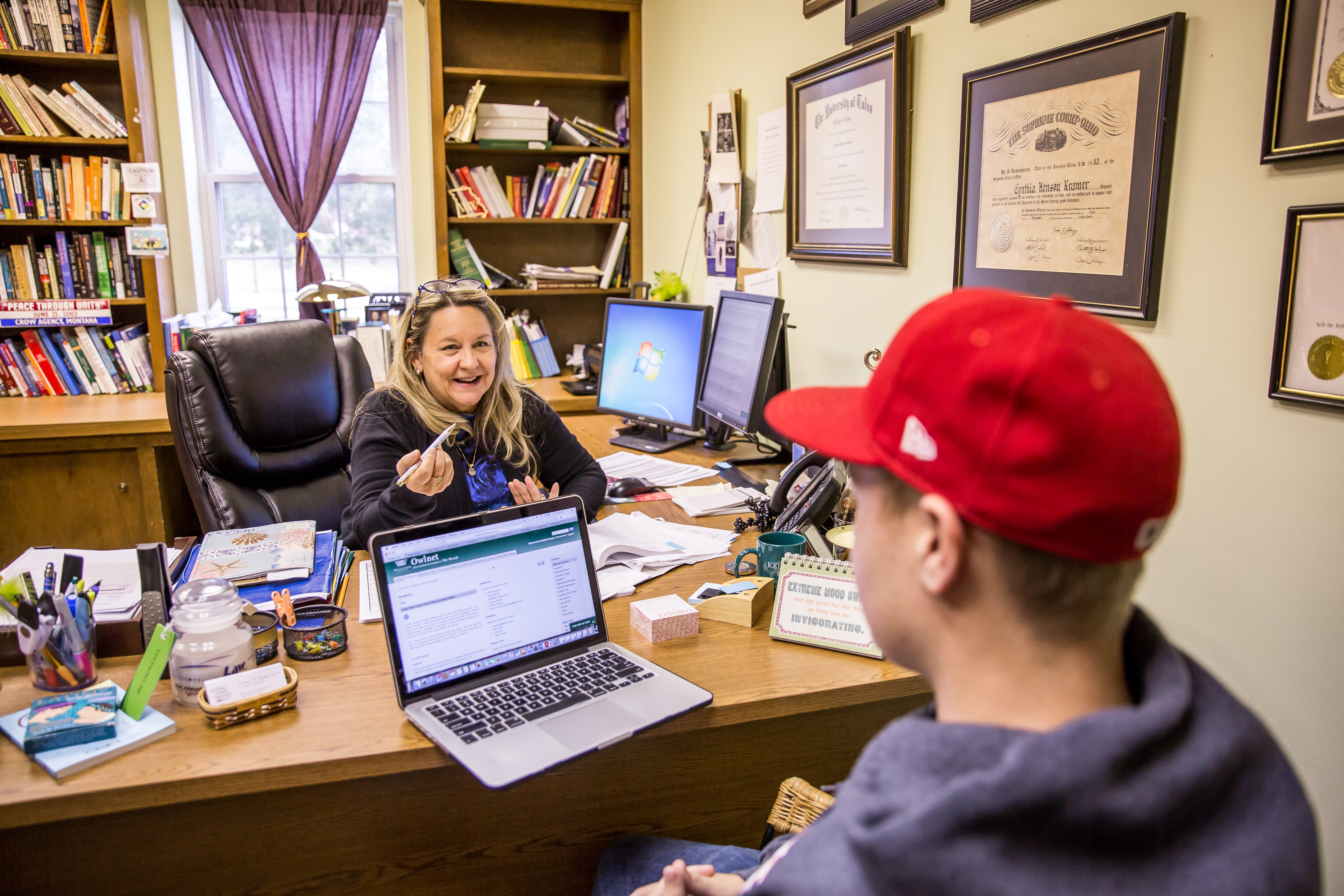
The William Woods Paralegal Studies program is over 40 years old. Alumni of this program have not only gone on to be recognized leaders in the paralegal field, but some have also become attorneys and judges. The Paralegal program is a balance between substantive and procedural law and includes stringent requirements regarding legal research and writing, legal reasoning, and drafting.
Students must complete Civil Practice, Ethics and the Law Office, Contract Law, Probate Law, and other legal specialty courses in order to earn the bachelor of science degree in Paralegal Studies. At this time, the program has moved to an online format and we are very excited that is has been named one of the best online paralegal programs.
| Learn more about the William Woods online paralegal studies program |
Classes at The Woods
We touch on a lot of controversial issues in my classes. It’s easy for conversations to get tense.
Sometimes I say the most outrageous things just to get students thinking. I like a good argument, which means a well-reasoned well-thought-out debate. But I will always respect your opinion if you support it and are courteous.
Constitutional Law is fascinating and one of my favorite classes to teach. Students come into the course with a lot of pre-conceived ideas about what the Constitution is, only to find out during the semester that things aren’t always so clear. Many of these questions are fundamental to how our legal and political systems operate, such as do you look at what the framers thought they meant or should the Constitution reflect changing society and morals?
Last year, I taught a new course called International Law and Politics. We discussed legal issues involving terrorism, world poverty, the environment, US-Mexico relations, and more. I really enjoyed how the students got engaged and involved in the topics.
I also teach a course called American Political Theory, which starts with the early settlements and then moves to the twentieth-first century, looking at politics through primary documents and essays. It is amazing to discover how the issues faced by the original founders are still the same issues facing the US political system today.
Learning to Think Critically
My major focus in the classroom is that I want students to think critically and logically. Whether it’s a general education class or a seminar for legal studies majors, I believe it is the purpose of a college education to teach students how to analyze information. Especially in today’s techno-info environment, when everyone has a smartphone with instant access to “facts,” it is imperative that we can all distinguish between what is really a fact and what is an opinion.
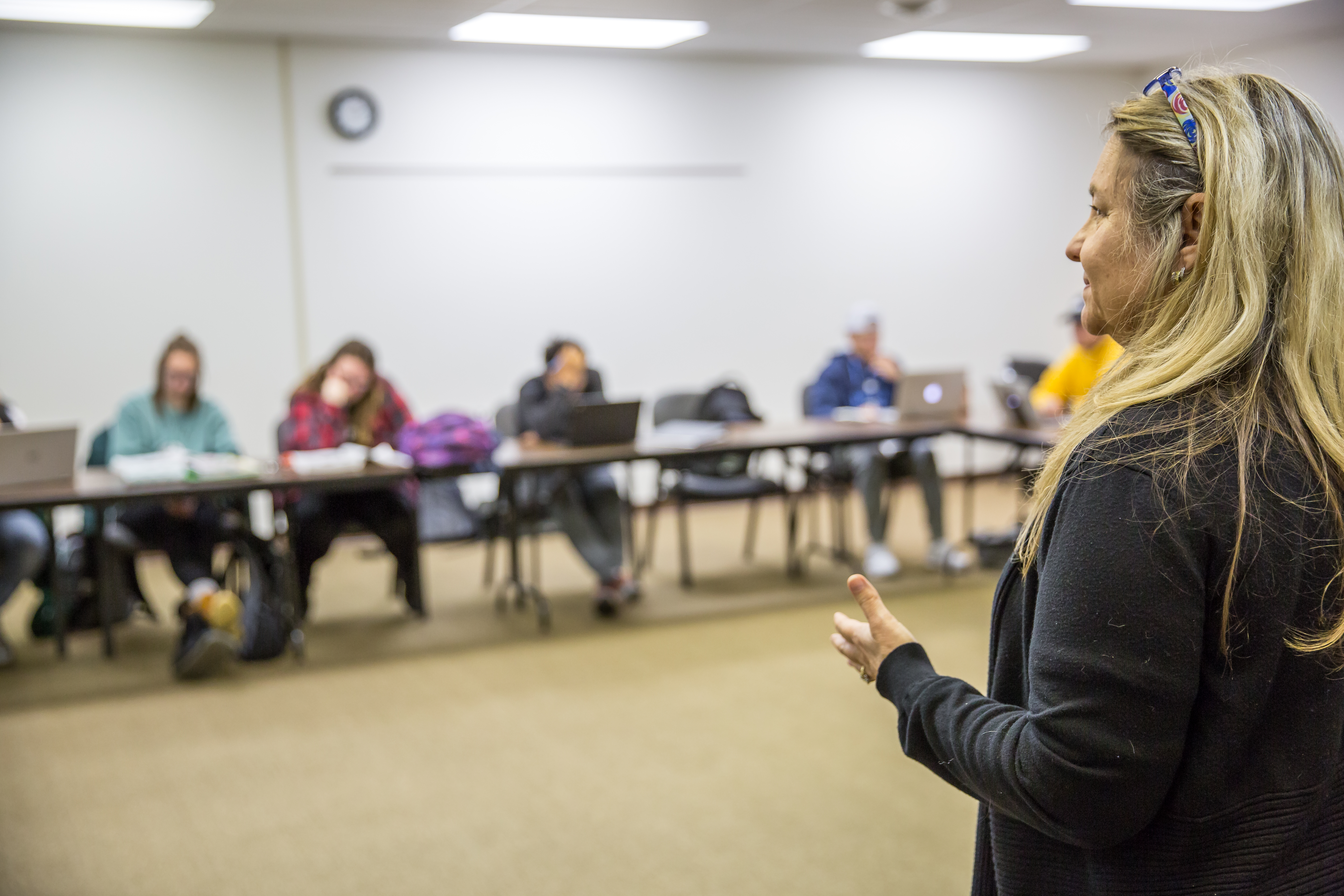
To help students develop critical thinking, I teach them the law school reasoning model of IRAC. The IRAC format uses a classic formula for addressing a problem. First, you summarize the facts; then you identify the legal or policy issue (I); you then identify what the relevant law or policy is that relates to the issue that was raised (R); then you engage in the analysis (A) which includes applying the facts to that relevant law or policy; and that process should result in a recommended conclusion (C). I use this format in all my classes and I hope it becomes second nature for them when faced with any decision.
This method is helpful even if you don’t plan to go into the legal profession. One of the reasons I was particularly good at being a consultant is that I used this format in memo writing. If someone tells you they need to know about a business policy, you respond: here is what’s going on that has created an issue, here is the statement of the issue, here is the relevant law or business policy, here’s my analysis, and here’s my recommendation.
I honestly can’t count the number of emails I have received from alums over the years telling me how they have benefited from this skill.
I tell students that I’m not teaching you to be a lawyer. I’m giving you skills that transcend subject matter. If you can think like this, you will be successful in whatever profession you decide to do.
Political/Legal Studies Combinations
Law and politics are very eclectic and this is a great program to pair with other majors. I see many students combine it with communications, history, criminal justice, psychology, and business. For example, you can be biology major and still benefit from a minor in political/legal studies because maybe you want to influence health care policy one day.
You can’t get away from law and politics. They impact every aspect of your lives. No matter what your major, understanding how the law and politics work can only benefit you.
The William Woods Model Courtroom
A few years after I started at WWU, the administration allowed departments to submit proposals for facility expenditures to enhance the academic programs. I submitted a proposal for a model courtroom which was approved. One of the other Legal Studies faculty and I visited several model courtrooms at law schools in Missouri, as well as real courtrooms, and designed what is now the Weitzman Model Courtroom in the Burton Business and Economics Building.
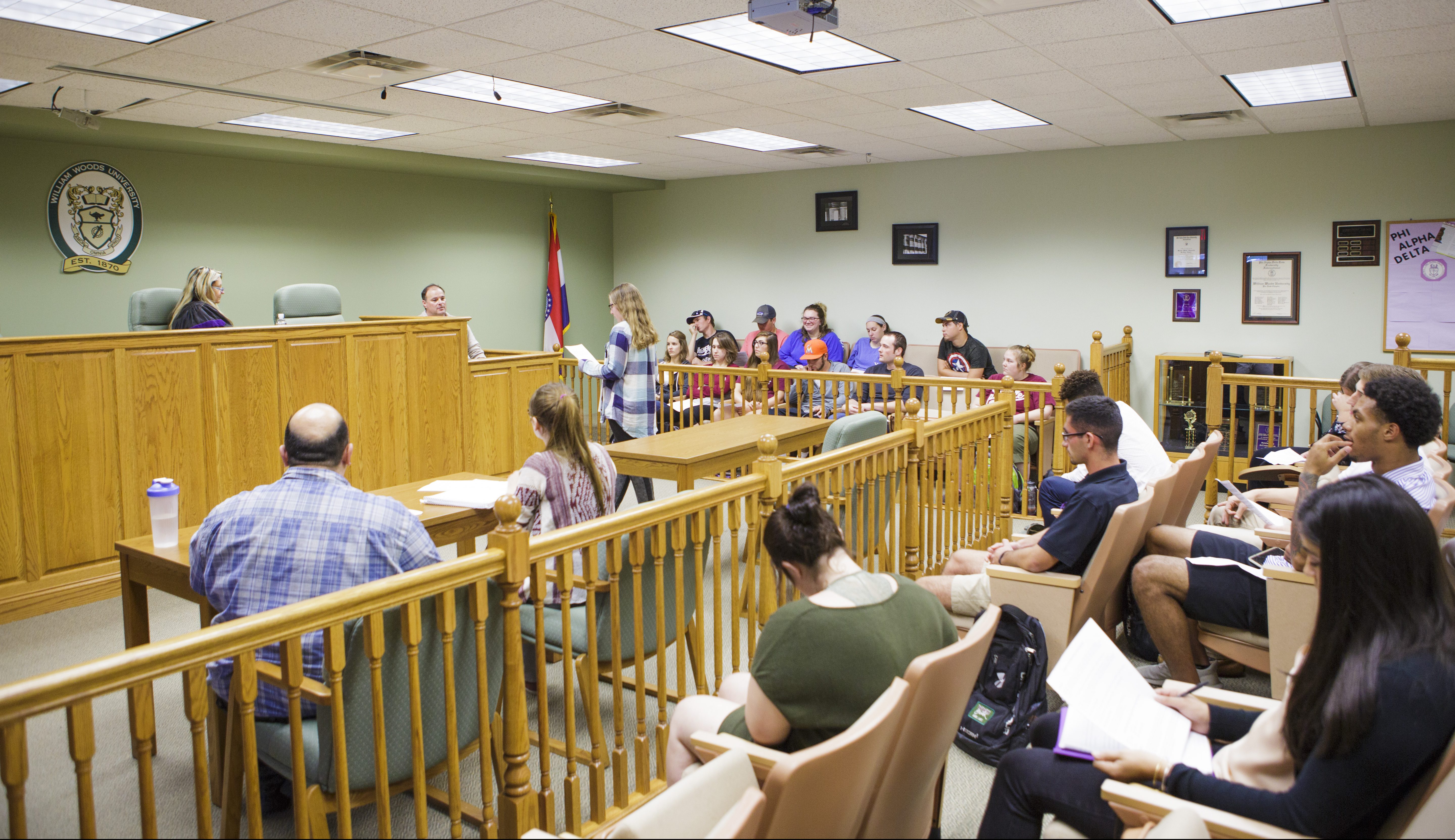
It is a fully-functioning courtroom that is designed for both trial level and appellate proceedings. Because of its design, WWU is able to host a docket of the Western District of Missouri Court of Appeals every year. This is a tremendous opportunity for our students to observe real attorneys conducting appellate arguments in front of real Court of Appeals Judges right on campus — an experience that very few undergraduate students get.
In addition, our courtroom is scheduled to be the venue for the 13th Judicial Juvenile Court of Callaway County’s new WISE Court. The WISE Court is a diversionary court that is a joint effort between the juvenile court, the Callaway County Juvenile office, and all the school districts in Callaway County. Again, this is an incredible opportunity for our students to participate as advocates, court personnel and in other positions in regard to actual quasi-legal proceedings right on campus.
We also use the courtroom to enhance our students’ hands-on application of the law in many of our classes. We refer to it as our lab experience, just as students in the sciences might use a lab to experiment using the theories used in the regular classroom.
Our two on-campus mock trial teams also use the courtroom for competition practice: the American Mock Trial Association team and the Phi Alpha Delta pre-law team.
Other WWU programs, such as ASL and social work, even use it to give students experience with how a courtroom is set up and what etiquette to follow.
Phi Alpha Delta at William Woods
Phi Alpha Delta is the largest international legal fraternity in the world. It started in law schools, but then they opened pre-law versions for colleges. William Woods chartered its award-winning chapter in 1997.
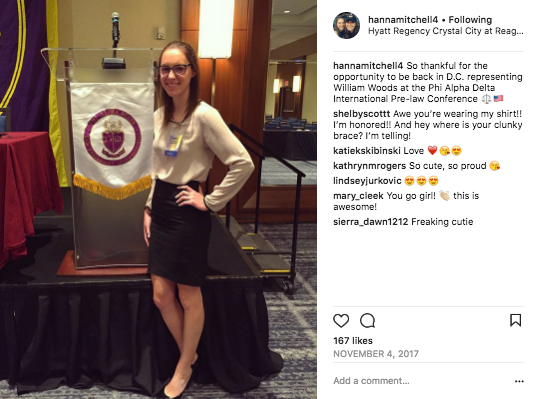
There are many benefits to joining the William Woods chapter of this professional organization. For example, we attend the organization’s four-day conference every year in Washington D.C., where students participate in a mock trial competition. It’s also a great networking opportunity, as you can interact with prominent judges, politicians, and lawyers. One year, our students even met the justices of the United States Supreme Court.
Careers After The Woods
A vast majority of our legal studies students go on to law school or graduate school. After that, their careers run the gamut. We have many alumni who are practicing law around the country.
But with a law degree, you can do anything — you’re not tied to being a lawyer.
Alumni are also involved in teaching legal studies, public administration, lobbyists, banking, international sales, corporations, not-for-profits and in other law and political entities.
Staying Engaged
I have a diverse background in both law and politics. I’ve been a lot of places and I’ve done a lot of things. And I enjoy it all.
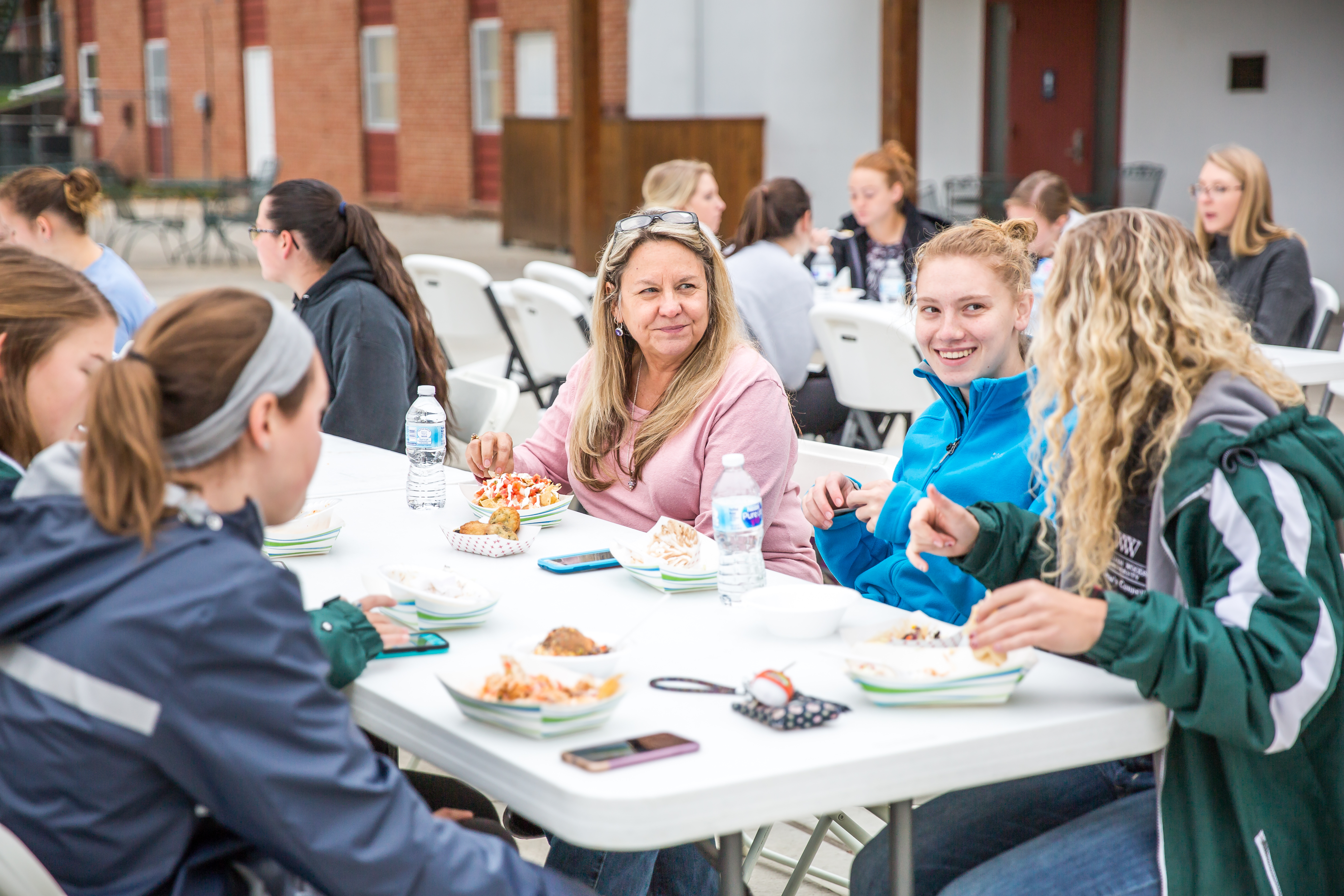
I’ve stayed in the legal profession because I love it and I like working with students, hearing what they have to say, and helping them become more critical about what other people say.
I want to know that our graduates have reached whatever beliefs they have in a reasonable and logical process. You cannot disengage from law and politics because their influence is pervasive. And by understanding how law and politics work and mastering critical thinking, our graduates can successfully navigate the world and determine their place in it.
| Learn more about the William Woods Political/Legal Studies program |

